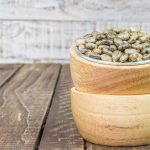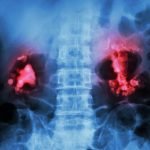Rattlesnake’s Venom to Help Against Hepatitis C
Node Smith, ND
New Study Recruits Rattlesnake Compounds to Aid in Treating Hep C
A new study from a team of Brazilian researchers shows evidence that certain compounds within a rattlesnake, native to South America, could aid in the treatment of hepatitis C.1 The idea for the research is founded on scientific records showing that certain animal venoms have activity against some viruses – yellow fever, measles, and dengue. Dengue belongs to the same virus family as hepatitis C – the Flaviviridae family.
Current Hep C Therapies Quite Costly
Current therapies against hepatitis C are very expensive, have adverse effects, and are contributing to viral resistance. The development of new agents is greatly needed. Similar to Brazil, a majority of liver transplants are due hepatitis infections.
Phospholipase A2 (PLA2-CB) and Crotapotin (CP)
The researchers were able to isolate 2 compounds from the venom of Crotalus durissus terrificus rattlesnake – phospholipase A2 (PLA2-CB) and crotapotin (CP). These compounds are found naturally as subunits of the crotoxin protein complex – the researchers also tested this complex.
In vitro Experiments
In vitro experiments on cultured human cells revealed antiviral action of both compounds – both separately and as a complex. PLA2-CB was able to intercalate with viral double-stranded RNA, inhibiting the production of new viral particles. The reduction of viral particles reduced 86% in the presence of PLA2-CB.
Compounds Block Viral Entry into Human Cells
The 2 compounds also were able to block viral entry into human cells – phospholipase blocked 97% of viral cell entry, and crotoxin reduced viral infection by 85%.
The second isolated compound, CP, was found to affect neither viral entry nor replication, however, did have an effect on another part of the virus’s life cycle. CP was able to reduce the release of new viral particles significantly – 78%.
Research Also Studied the Antiviral Effects of Flavonoids from Pterogyne Nitens
This same research team was also able to use the grant for this research to study the antiviral effects of flavonoids from Pterogyne nitens, a kind of plant endemic to Brazil.2
Two flavonoids were isolated: sorbifolin and pedalitin. These flavonoids are found in high concentration in the leaves of the plant. These flavonoids were also tested against hepatitis C virus, as well as uninfected cells. Sorbifolin blocked viral entry by 45% of while pedalitin provided more promising results, blocking entry in 79% of cases.
Resources:
- Shimizu JF, Pereira CM, Bittar C, Batista MN, Campos GRF, da Silva S, et al. (2017) Multiple effects of toxins isolated from Crotalus durissus terrificus on the hepatitis C virus life cycle. PLoS ONE 12(11): e0187857. https://doi.org/10.1371/journal.pone.0187857
- Shimizu JF, Lima CS, Pereira CM, et al. Flavonoids from Pterogyne nitens Inhibit Hepatitis C Virus Entry. Sci Rep. 2017;7(1):16127.
Image Copyright: <a href=’https://www.123rf.com/profile_rdodson’>rdodson / 123RF Stock Photo</a>
 Node Smith, ND, is a naturopathic physician in Portland, OR and associate editor for NDNR. He has been instrumental in maintaining a firm connection to the philosophy and heritage of naturopathic medicine among the next generation of docs. He helped found the first multi-generational experiential retreat, which brings elders, alumni, and students together for a weekend camp-out where naturopathic medicine and medical philosophy are experienced in nature. Four years ago he helped found the non-profit, Association for Naturopathic ReVitalization (ANR), for which he serves as the board chairman. ANR has a mission to inspire health practitioners to embody the naturopathic principles through experiential education. Node also has a firm belief that the next era of naturopathic medicine will see a resurgence of in-patient facilities which use fasting, earthing, hydrotherapy and homeopathy to bring people back from chronic diseases of modern living; he is involved in numerous conversations and projects to bring about this vision.
Node Smith, ND, is a naturopathic physician in Portland, OR and associate editor for NDNR. He has been instrumental in maintaining a firm connection to the philosophy and heritage of naturopathic medicine among the next generation of docs. He helped found the first multi-generational experiential retreat, which brings elders, alumni, and students together for a weekend camp-out where naturopathic medicine and medical philosophy are experienced in nature. Four years ago he helped found the non-profit, Association for Naturopathic ReVitalization (ANR), for which he serves as the board chairman. ANR has a mission to inspire health practitioners to embody the naturopathic principles through experiential education. Node also has a firm belief that the next era of naturopathic medicine will see a resurgence of in-patient facilities which use fasting, earthing, hydrotherapy and homeopathy to bring people back from chronic diseases of modern living; he is involved in numerous conversations and projects to bring about this vision.









